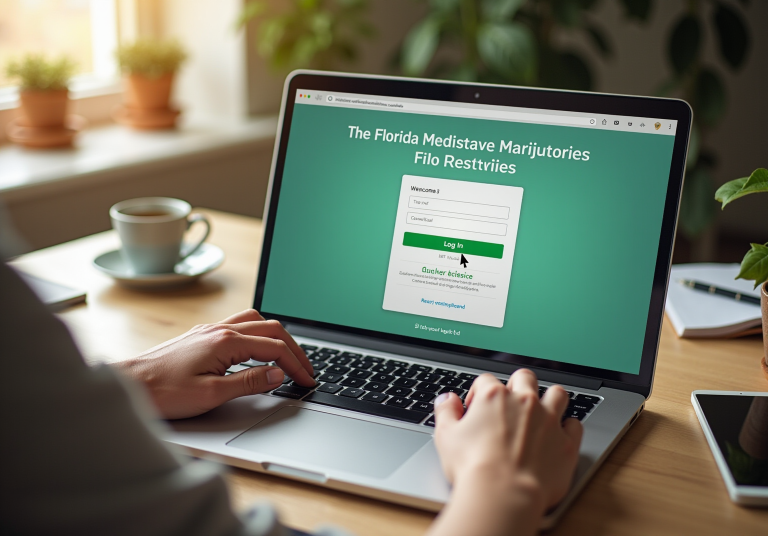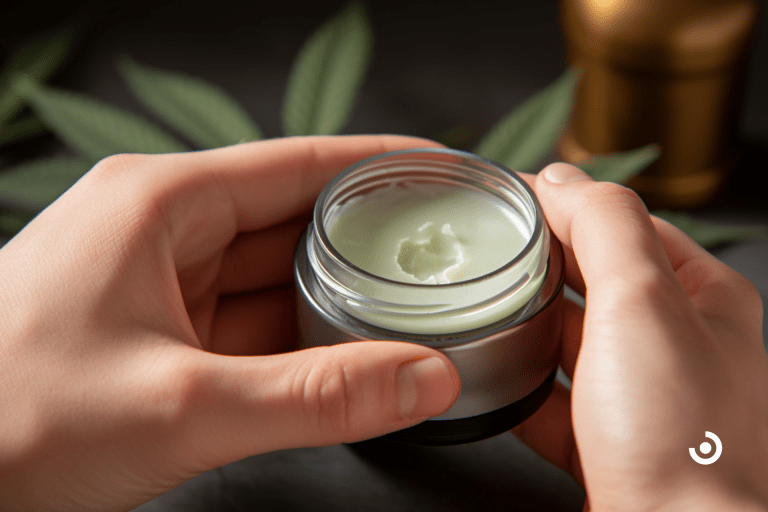How to Get a Caregiver Card
by Haley Mills · September 28, 2022
If you’re interested in becoming a primary caregiver, find out how to get a caregiver card. Learn about the process and what is required.

In most states, if you’re looking for a medical marijuana card, you’ve likely seen information regarding caregiver applications. While the name “caregiver” may speak for itself, the term has a different meaning regarding medical marijuana patients.
In fact, most states that have legalized medical cannabis have their own process and requirements for anyone who seeks to become a cannabis caregiver. This article will provide the information needed to become primary caregivers or obtain one for yourself to meet your medical marijuana needs.
What is a Primary Caregiver?
A primary caregiver is an adult over 21 legally allowed to purchase, transport, educate, and administer medical cannabis to MMJ patients with a valid medical card.
Over thirty states have legalized medical marijuana programs, allowing caregivers to assist qualified patients. In these locations, state legislation provides legal protection for the patient and the caregiver from criminal penalties.
4 types of Marijuana Caregivers
- Cultivation: grows marijuana on behalf of medical marijuana patients
- Transportation: transports marijuana for homebound or minor patients.
- Minor Patient’s Legal Guardian: Parents or guardians of a patient under age 18.
- Advisor: Educates patients on the medicinal use of marijuana.
Marijuana as Medicine
Marijuana and cannabis are often thought to be the same thing; however, the two terms are not exactly interchangeable. Cannabis refers to the broader plant species and can encompass all products made from Cannabis sativa. There are about 170 different cannabis species, including marijuana and hemp.
Often referred to as pot or weed, marijuana is explicitly referring to the products made from dried flowers or buds of the plant. They can include flowers, stems, and leaves. The main psychoactive compound is delta-9-tetrahydrocannabinol or THC. It also contains CBD, while hemp contains no THC and only CBD.
Weed is typically consumed through smoking but may also be ingested and used topically. When smoked, THC enters the bloodstream and travels to the brain. The second most active cannabinoid is cannabidiol (CBD), which does not give the same psychoactive effects as THC.
Today several different strains can be bred to induce different responses in the user. Some strains are designed to help with insomnia, while others are meant to be energizing. Different strains are used for different occasions based on the desired effect. The effects of marijuana may include relaxation, euphoria, increased appetite, altered perception, and impaired judgment.
Marijuana is a drug that has been used for centuries. The first recorded use of marijuana as a medication was in 2737 BC by Chinese Emperor Shen Nung. Marijuana was also used as an anesthetic during surgery in Europe and the United States during the 1800s and early 1900s.
Today marijuana is sold as a pain reliever and an alternative to dangerous prescription medications like opioids. Marijuana has been used in various medical conditions, including cancer, glaucoma, HIV/AIDS, chronic pain, and muscle spasms. Marijuana is also effective in treating symptoms caused by chemotherapy and radiation therapy.
Marijuana has many potential medical uses, including:
- It effectively reduces pain, nausea, and vomiting associated with cancer and other illnesses.
- It may also be used to manage mental illnesses such as PTSD, schizophrenia, and bipolar disorder.
- Marijuana has also been shown to reduce intraocular pressure in the eyes of people with glaucoma. It may cause the pupil to constrict, reducing the pressure inside the eye.
- Seizure management, particularly from epilepsy.
- Diseases such as Crohn’s disease, HIV/Aids, Multiple sclerosis, and Alzheimer’s.
Today, marijuana is most commonly used for recreational purposes. People enjoy smoking or ingesting marijuana for its psychoactive effects, including euphoria and a sense of relaxation.
However, the use of marijuana as a medicine is still hotly debated, with some states legalizing it for medical purposes. In contrast, others restrict all use as a comprehensive drug abuse prevention method.
What qualifies a person to be a caregiver?
Specific caregiver regulations vary from one location to the next. However, a few blanket requirements exist for people interested in becoming or designating a primary marijuana caregiver.
In general, primary caregivers usually must meet these requirements:
- An adult that is 21 years or older
- A United States citizen
- A resident of the state that the qualified patient lives in
Some states also require that the caregiver submit a clean criminal history background check and driving record if applicable. In many states, a caregiver can legally care for five patients, while some only allow one patient per caregiver.
Caregiver tasks include purchasing medical cannabis and acting legally on behalf of the patient. Because of this, caregivers are responsible for knowing their state’s medical marijuana rules and legislation.
They typically complete a third party caregiver form, separate from the qualified medical marijuana patient, including a registration fee and annual renewals.
The primary caregiver registering is legally bound to their medical marijuana patients and may not purchase or deliver marijuana to other patients with an MMJ card.
Marijuana Caregiver Registry Requirements by State
In 1996, California became the first state to legalize marijuana for medical use. Today, there are nineteen states plus the District of Columbia that allow people to purchase medical marijuana for specific medical conditions. Several other states are expected to consider legalizing marijuana in the upcoming years. There has been significant support for legalizing marijuana in recent years.
In 2012, Washington and Colorado became the first states to legalize recreational marijuana. In 2017, California became the most significant state to legalize recreational marijuana. Currently, 18 states where recreational marijuana is legal at a state level and 36 states (as well as the District of Columbia, Guam, Puerto Rico, and the U.S. Virgin Islands) have approved comprehensive medical marijuana programs.
Since the caregiver registration process varies in different areas, let’s take a look at two states that have legalized medical marijuana and their requirements for obtaining a caregiver registry identification card.
Colorado
To be a caregiver in Colorado, you must meet the following qualifications:
- Be 18 or older
- Be a Colorado resident
- Not be the patient’s physician
- Not have your primary caregiver
- Not be licensed as a medical marijuana business
Register as a caregiver
First, create an account and enter your information.
- We do not accept Colorado digital IDs from the MyColorado app.
- If you already have a patient account, you must create a separate caregiver account with a different username.
Login
- Use your temporary password and change your password after you log in
Print your caregiver ID card
If you do not have access to the internet or email address, you may register as a caregiver by mail. Please allow extra processing time if you register by mail.
Renew your caregiver registration
You will need to renew your registration each year.
- Log into your account. Make sure your information and copy of your Colorado ID are current.
- Click “save and renew registration.”
- Print your new caregiver registry identification card.
Accepting a caregiver agreement
Caregivers are notified of pending caregiver agreements after patients enter their caregiver’s registration ID and plant and ounce count on their application.
Steps to accept a caregiver agreement:
- Log into your caregiver account.
- Select your name
- Click on the “Caregiver Agreement” tab.
- Select the pending agreement
- Choose “yes”
- Click “save
Tips for caregivers
- Encourage patients to apply online.
- Talk with patients and share your caregiver registration ID.
- Ask patients for their patient registration ID number.
- Check your email for notifications and respond to caregiver agreements within 24 hours.
- If a patient applies by mail, give them a copy of your valid Colorado ID to submit with their application.
Patients applying with a caregiver
To ensure your application is approved and your card is issued to a caregiver:
- Apply online
- Talk with your caregiver.
- Follow the application instructions to ensure you submit all required information.
- Share your patient registration ID number with your caregiver.
- Make sure your caregiver accepts your online request for caregiver services.
- You can print a new card online with your caregiver’s name after agreeing with the agreement.
Massachusetts
A Personal Caregiver is a person who assists with a Patient’s medical use of marijuana. A caregiver’s responsibilities may include:
- Transporting a patient to and from a Medical Marijuana Treatment Center (MTC).
- Obtaining and transporting marijuana from an MTC on behalf of a Patient.
- Cultivating marijuana on behalf of a Patient who has received a Hardship Cultivation Registration.
- Preparing marijuana for consumption by a Patient.
- Administering marijuana to a Patient.
A Personal Caregiver may not do any of the following:
- Consume marijuana dispensed to or cultivated on behalf of a Patient.
- Sell, provide, or divert marijuana allocated to or cultivated on behalf of a Patient.
- Grow marijuana for the caregiver’s use unless the caregiver is also a Patient who has obtained a hardship cultivation registration.
- Cultivate marijuana to sell or provide marijuana to anyone other than the Patient.
- Allow a Patient under 18 to possess marijuana at any time when not in the presence of the caregiver.
Caregivers must be 21 years of age or older.
You’ll need a government-issued ID to register as a caregiver.
An individual may not serve as a Personal Caregiver for more than five Patients at once.
If a Personal Caregiver wants to serve more than five patients, the Personal Caregiver must seek a waiver according to 935 CMR 501.850. Exceptions include employees of healthcare facilities that provide care to Patients admitted to or residing at that facility—also excluded: visiting nurses, home health aides, personal care attendants, and immediate family members.
You and your Patient must maintain active registration with the Massachusetts Medical Use of Marijuana Program.
- The Patient must maintain an active certification from their healthcare provider for you to be protected for medical use of marijuana under Massachusetts Law.
- A Patient may designate up to two Personal Caregivers.
- A person may not receive payment or other compensation for their service as a Personal Caregiver.
- A Personal Caregiver must carry their Massachusetts Medical Use of Marijuana registration card while possessing marijuana.
How to Register
The fastest and easiest way to register as a Personal Caregiver is via the Online System.
You may register by mail, yet the processing times for paper applications are considerably longer. Contact them at (833) 869-6820 to request a paper registration form.
Here’s what you’ll need to register:
A personal identification number (PIN).
You’ll get the four-digit PIN from the Patient. You’ll need this number to register online as a Personal Caregiver.
A valid form of ID.
You must upload a copy of a valid form of identification. Accepted forms of ID include:
- State-issued driver’s license.
- ID card issued by your state’s Department of Motor Vehicles.
- A current U.S. passport or U.S. military ID. When submitting a passport or U.S. military ID as your valid form of identification, you must also submit a document that validates your primary residence. The name and address on the paper must match the information submitted during registration. Valid documents include:
- Utility bill (gas, electric, telephone, cable, or heating oil) less than 60 days old
- Current motor vehicle registration card
- Tuition bill with a due date of fewer than six months old
- Car insurance policy or a statement that is less than 60 days old
- Home mortgage, lease, or loan contracts less than six months old
- Certified U.S. marriage certificate dated within the past six months
- Property tax or excise tax bill for the current year
- First-class mail from a federal or state agency less than 60 days old
- Current state-issued professional license with your address
A passport-style photograph of yourself.
If you submit a Massachusetts driver’s license or a Massachusetts photo ID card as your form of identification, the Online System may be able to retrieve your RMV photo.
If our system cannot retrieve your photo, you must upload a passport-style image that meets the criteria laid out on the website.
Fees
Registering as a caregiver for a Medical Marijuana Program registration card through the Cannabis Control Commission is no fee.
Registration Card
You will receive your registration card in the mail within 10-15 business days if approved. In the meantime, you’ll be able to print your temporary registration card, which expires four weeks from the date that your registration is approved. If you do not receive your registration card within three weeks, contact us at (833) 869-6820.
You must carry your registration card whenever you own marijuana for medical use. The maximum amount of medical marijuana Patients may possess at one time is a 60-day supply or up to 10 ounces.
Registration cards are issued annually on the anniversary of your registration. You must renew your registration annually to remain active as a caregiver.
Leafy Mate & Leafy DOC Can Help
Leafy DOC is a leader in the medical marijuana telehealth industry that works with patients to connect them with doctors and go through the medical marijuana card application process online.
Currently, Leafy DOC can assist patients in New York, Illinois, Connecticut, Michigan, Pennsylvania, New Jersey, Oklahoma, Ohio, Missouri, and Virginia, with more states on the way. Our health coaches and physician partners can also guide you in the right direction regarding the adult patient-caregiver registration process.
Leafy Mate can connect you with marijuana doctors in your area, dispensaries, and cannabis deals near you. Learn more and connect with us online to get started in your state’s medical-marijuana program.
Last Updated: August 8, 2024
Get Approved for Your Medical Marijuana Card in Minutes!

Get Your Medical Card
Connect with a licensed physician online in minutes

Like This Article?
Share with your friends
Table of Contents
Keep Reading
-
Master Florida Medical Marijuana Login: Step-by-Step Guide for Patients
Step-by-step guide to successfully navigate your Florida medical marijuana login process.
-
The Future Of Skincare: CBD-infused Products
Unveil the future of skincare with CBD-infused products for glowing, healthy skin. Explore the revolutionary world of CBD-infused skincare now!
-
5 Uses For Cannabis Infused Salve
Revolutionize your wellness routine with cannabis-infused salve! Explore the top 5 uses, from pain relief to skincare, and discover the endless possibilities. Click here to unlock the benefits of cannabis-infused salve today!



